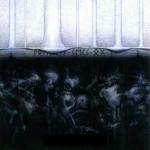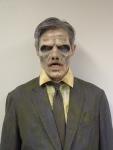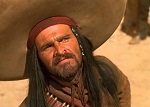The" Bermuda" Triangle of Theft
Volodymyr Lanovy, for "Economic Pravda"- originally published Friday November 13, 2015, 16:00
Why are we so helpless? What's really going on with us?
Why are we, unlike other countries-including other former socialist countries-unable to build a working economic system?
Answer: we still have an incredibly pointless and regressive economic model-the triangle model, which encompasses society, stifling its development.
Its points are corrupted bureaucracy, state-monopoly corporations and private-oligarchic holdings.
These points devour labour and value that the society creates; they deprive it of resources for development and the chance of a better life.
These predators support and reinforce one another. They've created illegal enrichment schemes and they realize them together, embezzling sums measured in billions. It's the Ukrainian Bermuda triangle, which swallows up enormous amounts of material wealth.
In the highest ranks of the economic hierarchy the parasitic bureaucratic swarm assigns money from the budget towards unprofitable state monopolies-as investments in capital, subsidies, surplus costs, price indexing and credits. Michael Saakashvili estimates the extent of yearly useless budget spendings aimed at offsetting the losses from state monopolies at 120 billion UAH. In reality, since Yatseniuk's "kamikaze government" took over, this number should be increased at least by 40%.
On the other hand, the state-monopoly corporations use fraudulent mechanisms-overpayment for goods and services to private companies, selling them products at unreasonably low prices- to create artificial profit for oligarchic conglomerates.
M. Hordienko, who was fired from the post of Head of the State Financial Inspection listed the sums of discovered thefts through such schemes in every inspected monopoly sub-government corporation-ranging from 0.5-4 billion UAH a year.
And that's just from those where checks were done. It's physically impossible to check them all; not to mention one would need guarantees of the inspectors' honesty.
There's over 10 such monopolist industry monsters in the fuel and energy sector alone. Overall there's over 200 of them in Ukraine and at least 50 of them are monopoly holders. The amount of the embezzled sums in this area is hard to estimate, but given the average numbers it's around 40-60 billion UAH. Private oligarchic holdings also grow rich as result of being financed by corrupted government. The most significant methods of corrupt financial assistance are as follows:
1. Preferential tax treatment, including unlawfully large returns of the Added Value Tax, most of these-illegal. This can be valued at 40-50 billion UAH.
2. Budget guarantees and credits from special government programs and state contracts-from 50 to 80 billion UAH, depending on the year.
3. Refinance credits for oligarchic banks, handed out by the National Bank of Ukraine (NBU). Each year this number was between 40 and 50 billion UAH, but 2014 set a new record- banks were given 180 billion UAH. In the previous years, approximately half of the refinancing money never returned.
As payment for these officials' generosity, heads of government receive bribes. According to insiders these can be up to 50% of the money received. The corruptioneer's profits aren't limited to just "kickbacks" from oligarchs and direct bribes from monopoly holders. They collect money for their other "services". These include appointing the right people to government and as heads of state-owned corporations, including them as members of Parliament, various services for business, minimization of tax payments, approval of customs paperwork, increasing prices and tariffs, providing access to state-owned assets, helping to avoid criminal responsibility.
These "services" are difficult to put a price tag on; the number may be anywhere between 50 to 75 billion UAH.
If we take all of the above sums, it follows that the amount of money involved in the triangle of corruption each year is at least 350 billion UAH, and at most-520 billion UAH. To this we must also add the yearly corruption "flow" on the local level-at least 150-170 billon UAH. Thus, anywhere from 500 to 690 billion UAH each year are illegally ejected from the national economy and are embezzled by state officials, oligarchs and managers of monopolistic monsters. This is the amount equal to the yearly budget and the Pension Fund, and is just under a third of Ukraine's GDP.
It can be pointed out unquestioningly that in 2014-2015 the amounts of money being skimmed out of the national economy did not change. The clarifications concern only a certain redistributions of the sums between the participants in the triangle of extortion.
The corruption "flows" clearly increased. The reason lies in the increased risks for the official that their cries may be discovered. The oligarchs' profits have decreased due to the deepening of the economic crisis and the redistribution of the state financial assignations between clans.
The amounts of money that stick to the hands of managers of state corporations have not decreased at the least, and in many cases they are increasing. This can be seen from the increase in their unprofitability, which can largely be explained by managerial abuse.
How can the economy function and develop with such losses? GDP is the total sum of all the mony earned by all citizens and the state machinery and also the amortization amount of the principal capital and pure internal investments in Ukraine.
It follows that we're being "cut out of" a third of the means for the people to exist, for the government to function, and for the economy to grow. Corruptioneers along with "helpers" in the state and private sectors of the economy embezzle sums that equal to the fund of the workers' salaries and other private earnings and citizens' pensions.
There's another side to the theft of Ukraine: taking money out of the country. This means they are completely excised from the national economy. Spending the stolen money inside the country would at the very least mean including it in the national "shadow" economy and creating "grey" jobs.
In the last years, the stolen money has been taken outside the country much more intensively.
This can be explained by the fact that the crooks in the government tend not to spend their ill-gotten wealth on Ukrainian soil. On the one hand, they prefer to show off their wealth in other countries; on the other-since the Revolution of Dignity and the activation of civil society groups it's become much harder to hide stolen wealth in Ukraine.
Accordingly, the stolen sums are converted into "hard" foreign currency and taken abroad. In Yanukovych's times, approximately 40% of these sums, of 200-275 billion UAH were taken out yearly. They were converted into foreign currency as $25-35 billion USD.
With the current government, the portion of hidden earnings that are taken abroad grew to 60-70% or 300-480 billion UAh from the total earnings of the criminal triumvirate. With the current exchange rate, $15-22 billion USD are taken abroad each year. That's more money than what Ukraine gets each year in total from all creditors. If the destructive triangle's actions aren't halted than the threat of lack of currency becomes real again, even considering the wide range of international crediting programs.
In order to take them out of the country, dollars are being bought up on the domestic market. This extra demand hangs over the market and increases the threat of the collapse of the hryvnya;s currency guarantees. Prior to 2014 the demand in hryvnya for the dollar was greater than the amount of foreign currency sold by businesses and individuals by 4-5 billion USD per year. Majority of the dollars were being bought up not by citizens who wanted to protect their savings, but by elite groups- participants fo the "Bermuda" triangle. Security Service of Ukraine (SBU) reports nearly daily on the closure of another "conversion centre".
The purpose of such centres is the illegal exchange of non-cash hryvnya that's been stolen within the country into foreign currency cash. The persons interested in such "shadow" conversion are corrupt officials and managers of state-owned enterprises and institutions.
People are forbidden to buy more than $200 USD at a time in exchange kiosks and banks, while the conversion centres located in private apartments see billions go through them.
Despite the liquidation of the discovered "converts", new centres pop up like mushrooms after rain. This indicates a large "shadow" demand on foreign currency so that it can be routed out of the country through the banks.
In order to satisfy the demand for the billions of dollars, Yanukovych's regime spent the gold and currency reserves of the NBU. over 2012-2013 they decreased y $16 billion USD. The other source was the government's foreign credits-$5-6 billion each year. Even larger sums were taken out by means of exporting goods and holding back the currency profit. By such actions the regime led the country to a deep exhaustion of currency resources.
Of the sums being stolen each year, the larger part, at least 300 billion UAH, ends up in the pockets of the bureaucracy, including deputies (elected representatives) of all levels.
The unique characteristic of the period that began when Yanukovych came to power was the shift of the main role in the total theft from the oligarchic nouveau-riche, who grew rich especially quickly under L. Kuchma and V. Yuschenko, to the camarilla of government officials. This tendency became even more pronounced after the Revolution of Dignity.
First of all, the revolution demanded sacrifices among the oligarchs of the Donetsk clan, and the new bureaucrats quickly shifted the point of their "struggle" to them. The illegal profits of the Donetsk group decreased, while Firtash and Kurochkin lost most of their wealth.
Second of all, the new corruptioneers-manipulators of the public opinion-became much bolder. They increased the collection rates hoping that they could hide behind the robes of reformers and fighters against corruption that they've put on.
The creation and mechanism of action of the criminal triangle
The criminal "Bermuda" triangle has its creators. These were the post-soviet Ukrainian officials. They worked on 3 goals.
1. They were trying to preserve their control over running managerial processes of enterprises; otherwise such means of control had to be destroyed.
Here we talk about establishing prices, dotations, subsidies, control over making contracts, tender purchases, financing enterprises, capital investments in construction, infrastructure, writing off company debts, setting down hryvnya's exchange rate, assigning foreign currency "flow", export and business licensing.
2. From the first months of Independence, officials initiated the creation of state corporations that were the successors of the Soviet-era industry state committees-the in-between lonk between industry ministries and the production enterprises.
The officials became the managerial link of the corporations created from plants and factories, who were deprived of the ability to manage their affairs independently. These rights were transferred to former officials who gained control over finances, resources and profits of enterprises, without any participation in the production process. The damage this caused to the economy was twofold.
First of all, it eliminated competition. State monopolies were established, and quickly became unprofitable. Monopolies used their abilities not for their own super-profits, but to transfer them to private structures and government officials.
Secondly, it eliminated all interest that the one-independent production units had in profitable management. It became more advantageous to demonstrate unprofitability, to have a right to budget subsidies, investments and increased prices for the goods they produced.
3. With the beginning of privatization of large enterprises, from 1998, the officials orchestrated the transition from the egalitarian to the elitist privatization model, where the highest-standing officials transferred majority of shares into single hands of particular businessmen, friends of the government or their relatives, with the condition that they shift into the financial oligarch class.
They were tasked with financing the election campaigns of the government parties and individual candidates; owning nation-wide TV channels and conducting the appropriate information policy; and to share their profits with the top people in the country.
They began to build holdings, increasing their influence in economy and ensuring a greater stability of their financial-industrial empires.
Oligarchs found sources of enrichment in every parallel sphere, developing "shadow" profit schemes and establishing useful relationships with state corporations, financial-crediting institutions, and government offices.
Oligarchs de-facto brought to life to the construction that the corrupt officials placed an order for; they've introduced the mechanisms of theft that are being used both by persons in government and by managers of state monopolies.
In the given geometric figure, oligarchs play a role of "technologists" without whom the money can't be "muscled out" or "laundered". Without them, there will be no triangle. State monopolies provide the infrastructure, services, and the transfer method of the fraudulent process.
The criminal triangle model was created by the bureaucrats in their own interests. They don't see a different way to build Ukrainian economy. and they will defend their monstrous child by all means, including destroying their opponents.
They are doing that even now, destroying revolutionaries, volunteer soldiers, volunteers, law enforcement officers who've taken a step on the path of uncovering the corruptioneers.
One of the money bags who was asked whether he could keep his business going without trips to bureaucratic bodies, said "If I stop going to them, others will start. Why should I transfer the good relationship with officials to another businessman? It's hopeless to expect them to work honestly".
With the creation, strengthening and constant renewal of connections between the participants of the extorting triangle, the latter became a systemic institution of economic organization. This system is unofficial, illegal, although it also intercepts legal relationships. Of course, it doesn't encompass the entire economy. There are spheres which the oligarchs and corruptioneers can't reach: small business, retail trade, everyday, communal energy and transport services. But these spheres are on the periphery of economic relationships, they don't define the principal capital flow and are secondary to the processes that form oligarchic holdings.
At the same time the criminal three-sided system prevents small independent spheres of economy from expanding. As soon as they grow and become mid-size or large enterprises, then corruptioneers and oligarchs take them-either by force, money or treachery- and integrate them into their own structures.
If the raiders are refused-then any and all tools of destruction are used. Usually these are the punitive tax institutions.
Thus the triangle not only oppresses and bleeds the economy itself, but also stands in the way of development of alternative industry sectors in the country.
On the one hand, this system is somewhat without any alternative. It's impossible to enter the market or obtain state financing bypassing it, because economic freedoms are suppressed. All more-or-less large business beyond the triangle stops.
The businessmen who've entered illegal and criminogenic relationships are satisfied: they don't need to struggle against competitors, look for new solutions and spend sleepless nights, while the money flows into their hands by itself. Those who've climbed into the chairs of managers of state companies and squeezed their way into the government are also happy. The participants of the illegal triumvirate complement one another and cannot function without each other.
On the other hand, their actions are destructive, they drag the country to the bottom. The illegal relationships within the triangle allow one to consider them criminal, since they are a resolve of a criminal conspiracy, and the parties of the relationship--as an organized criminal grouping.
The unique feature of the thieving grouping is the involvement of law enforcement and judicial bodies, the latter's subordination to the corruptioneers in government and to the oligarchic clans.
This was especially evident prior to the Revolution of Dignity. Now there are changes happening, the most obvious of which is the seizure of key and leading positions by the corrupt officialdom, which overwhelmed the law enforcement system and made it serve them.
In these conditions, all civilized forms of civil resistance to the criminogenic three-headed serpent from Maydan activists and independent businessmen become pointless and formally- as interpreted by police, SBU, and prosecutors- anti governmental, as was already pronounced by today's leaders.
Ukraine faces not only the task of reforming economy and government.. Citizens are opposed by a thieving gang, which took over governing institutions, controls the legal and illegal financial streams. manages the bulk of the business, property assets and real property, and controls the electoral process.
The people face a fully formed economic-political system, that rules the government and society top-down. Its actions have done such damage to the Ukrainian economy that it's collapse and degradation became inevitable.
This system led to a critical divide between the current "elite" and the society, to the unseen level of confiscation of the results of labour of millions of workers in favour of elitist robbers. It led people to poverty, to taking national capital abroad and loss of possibility of the country's development.
The existence of this system threatens the country; it must be broken. The last two revolutions were dedicated to this, but it persists. The exploitative system is complete and organized, and thus its liquidation is a difficult task. It requires a unity of all healthy political, civic and business forces of the society.
The transformation of the extortion triangle lies in transforming the system of corrupt bureaucratic management into a transparent system that uses market forces and mechanisms in its management. It also lies in transforming oligarchic empires into competitive business structures and disbanding state-monopolies into a grouping of independent businesses.
Unfortunately, both post-Maydan governments have (clearly, with great pleasure) prolonged the lifespan of the thieving model and were surprised to discover that while these sweet conditions are in place, the economy said governments are supposed to be in charge of, is flying topsy-turvy.
Volodymyr Lanovy, ex-minister of economy, Ph. D Economy, President of Centre for Market reforms.
Original publication:
http://www.epravda.c...5/11/13/567057/
 Andorion, on 24 November 2015 - 02:55 PM, said:
Andorion, on 24 November 2015 - 02:55 PM, said:
 Help
Help


















